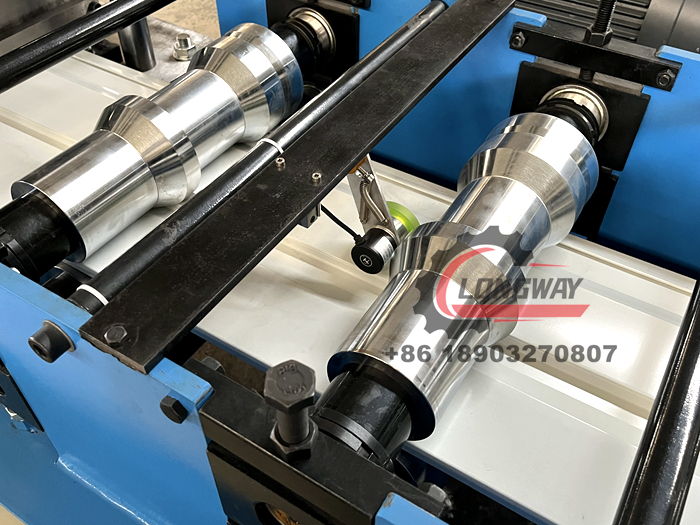Cold Formed Steel Solutions for Innovative Construction and Manufacturing Applications
The Rise of Cold Formed Steel Machine Companies Revolutionizing Construction and Fabrication
Cold formed steel (CFS) has emerged as a revolutionary material in the construction and fabrication industry. Its versatility, strength, and cost-effectiveness have rapidly positioned it as a preferred choice across various applications. In light of this transformation, cold formed steel machine companies are playing a crucial role in redefining manufacturing processes, streamlining operations, and contributing to sustainable practices in construction.
Understanding Cold Formed Steel
Cold formed steel is produced through the process of shaping steel sheet into various structural forms at room temperature, thereby avoiding the extreme heat involved in traditional steel production. This method utilizes a cold rolling process that results in stronger and more precise shapes, enhancing the overall performance of the steel in construction applications. Common forms of cold formed steel include C-sections, Z-sections, and tracks, which are typically used in wall framing, floor systems, and roofing.
One of the primary advantages of cold formed steel is its strength-to-weight ratio. It provides exceptional durability while remaining lightweight, allowing for easier handling and installation. Furthermore, CFS is resistant to fire, pests, and rot, making it an ideal choice for both residential and commercial building projects.
The Role of Cold Formed Steel Machine Companies
As demand for cold formed steel escalates, cold formed steel machine companies have emerged as key players in the manufacturing landscape. These companies design and produce specialized machinery that can efficiently shape and cut steel into desired forms with high precision. The innovation and technology behind these machines not only improve production rates but significantly reduce waste, leading to more sustainable manufacturing practices.
Cold formed steel machine companies offer a variety of solutions, including roll forming machines, cut-to-length systems, and punching machines. Each machine plays a vital role in the production line, allowing manufacturers to create complex sections and profiles that meet the specific needs of their projects. High-speed roll forming machines, for instance, can produce continuous lengths of steel profiles with minimal labor, increasing efficiency and reducing production costs.
cold formed steel machine company

Economic Impact and Job Creation
The rise of cold formed steel machine companies has had a significant economic impact. As the construction industry continues to embrace CFS, these companies not only contribute to increased productivity but also create job opportunities in engineering, manufacturing, and technical support. Skilled workers are needed to operate sophisticated machinery, design innovative solutions, and provide maintenance, which further supports local economies.
Moreover, the integration of automation and artificial intelligence in machine operation has enhanced the capabilities of cold formed steel machine companies, allowing them to produce customized solutions rapidly. This advancement leads to a demand for advanced training and education in technical fields, promoting a skilled workforce capable of meeting the future demands of the industry.
Sustainable Practices and Future Directions
Sustainability is a growing concern in the construction industry, and cold formed steel machine companies are doing their part to minimize their environmental footprint. CFS is fully recyclable, and the production processes have become more energy-efficient over the years. Innovations in machine design aim to reduce energy consumption and material waste, aligning with global goals for sustainable construction practices.
Looking ahead, cold formed steel machine companies are on the brink of further advancements with the integration of smart technologies. The incorporation of IoT and data analytics into manufacturing processes is expected to optimize production efficiency, monitor machine performance, and enhance predictive maintenance. As technology evolves, these companies will be equipped to offer even more innovative solutions to the construction industry.
Conclusion
Cold formed steel machine companies are at the forefront of a transformational shift within the construction and fabrication sectors. Their ability to produce high-quality, precise, and versatile steel products has redefined manufacturing standards. As sustainability and efficiency become increasingly prioritized, these companies will continue to innovate, creating a lasting impact on the construction landscape while contributing significantly to economic growth and job creation. With their commitment to excellence and adaptation to modern technologies, the future of cold formed steel machine companies looks promising, paving the way for a more resilient and sustainable built environment.
-
Roof Panel Machines: Buying Guide, Types, and PricingNewsJul.04, 2025
-
Purlin Machines: Types, Features, and Pricing GuideNewsJul.04, 2025
-
Metal Embossing Machines: Types, Applications, and Buying GuideNewsJul.04, 2025
-
Gutter Machines: Features, Types, and Cost BreakdownNewsJul.04, 2025
-
Cut to Length Line: Overview, Equipment, and Buying GuideNewsJul.04, 2025
-
Auto Stacker: Features, Applications, and Cost BreakdownNewsJul.04, 2025
-
Top Drywall Profile Machine Models for SaleNewsJun.05, 2025








